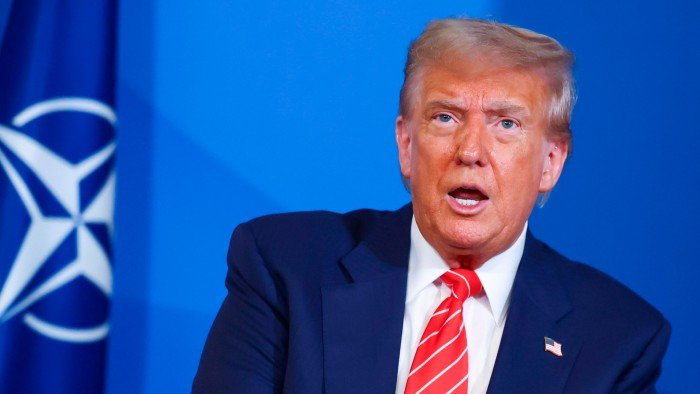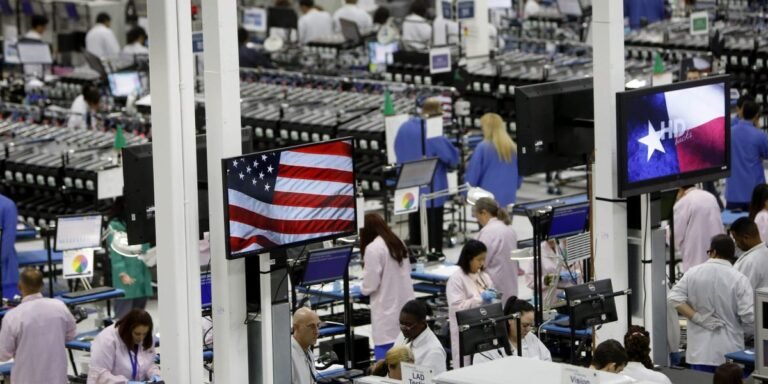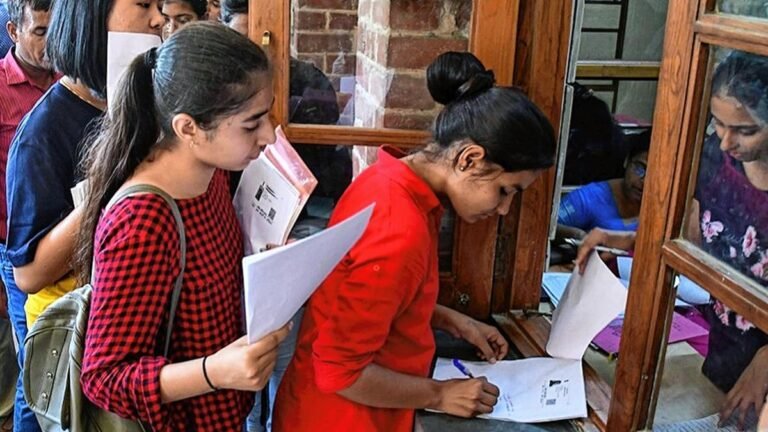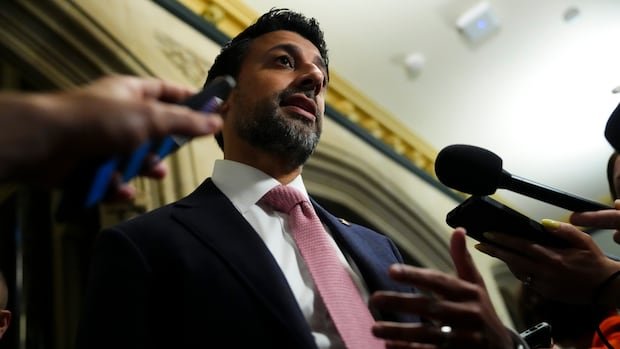
Unlock the White House Watch newsletter for free
Your guide to what Trump’s second term means for Washington, business and the world
Donald Trump said the US would talk to Iran “next week” and “may sign an agreement” on Tehran’s nuclear programme, as he dismissed an intelligence leak that suggested the impact of American strikes on key facilities was limited.
Speaking at a Nato summit in The Hague, the US president said he “could get a statement that they’re not going to go nuclear”, referring to the possibility that Iran would push to redevelop its programme.
However, he suggested that the talks would be largely unnecessary following the US strikes on facilities at Fordow, Natanz and Isfahan at the weekend.
“We’re going to talk to them next week, with Iran,” Trump added. “We may sign an agreement, I don’t know . . . I don’t think it’s that necessary.”
The president’s envoy Steve Witkoff conducted several rounds of talks with the Islamic republic over its nuclear programme before Israel attacked Iran this month.
Earlier at the Nato summit, Trump compared the US strikes to the second world war bombings of Hiroshima and Nagasaki, suggesting his actions had brought the conflict between Israel and Iran to a swift end.
“I don’t want to use an example of Hiroshima, I don’t want to use an example of Nagasaki, but that was essentially the same thing — that ended a war,” Trump said.
“This ended [the Israel-Iran] war. If we didn’t take [out the nuclear facilities], they would be fighting right now,” he said.
Trump said that the intelligence leaked on Tuesday, which said the US strikes had set back Iran’s nuclear programme by at most six months, was inconclusive.
He added that the damage to the sites at Fordow, Natanz and Isfahan could not be fully ascertained until Israel delivered an assessment.
Trump said that the US Defense Intelligence Agency, which put together the report on Fordow, “really don’t know” about the damage, adding: “I think Israel is going to be telling us very soon.”
Israeli Prime Minister Benjamin Netanyahu’s office said on Wednesday that the country’s atomic energy commission had said the US strikes on Fordow had “rendered the enrichment facility inoperable”.
It added that the combined US and Israeli assault on Iran’s nuclear sites had “set back Iran’s ability to develop nuclear weapons by many years”.
A senior DIA official said the report was a “preliminary, low confidence assessment” and not the final conclusion. He said the assessment would be “refined” as additional intelligence about the outcome of attack became available.
At the Nato summit, Trump, US defence secretary Pete Hegseth and secretary of state Marco Rubio insisted that Fordow had been “obliterated”, with the US president saying Iran’s nuclear programme had been set back “decades”.
But General Dan Caine, chairman of the US joint chiefs of staff, was more measured on Sunday, saying that while the initial evaluation suggested the three sites had “sustained extremely severe damage and destruction”, final assessments “would take some time”.
Hegseth said the Pentagon was investigating the leak of the report alongside the FBI.
Trump’s appearance at the Nato summit came a day after a tentative ceasefire between Iran and Israel took hold following 12 days of war.
The president had scolded both sides on Tuesday for alleged breaches of the US-brokered truce, saying he was “really unhappy” with Israel in particular.
But in The Hague he said he was “so proud” of Israel for limiting its retaliation to an alleged breach of the ceasefire by Tehran, adding: “Netanyahu should be very proud of himself.”
Trump said that he believed that Iran’s stockpile of uranium enriched to 60 per cent purity had been hit by the US strikes at the weekend.
“I believe they didn’t have a chance to get anything out [of the facilities] . . . It’s very hard to remove that kind of material,” he said.
“I think we’ll end up having somewhat of a relationship with Iran,” the US president added, saying “the last thing” Tehran wanted was to continue with its nuclear enrichment programme.
Asked if the US could strike Iran again if the Islamic republic redeveloped its nuclear infrastructure in the future, Trump said: “Sure.”
Additional reporting by Demetri Sevastopulo





